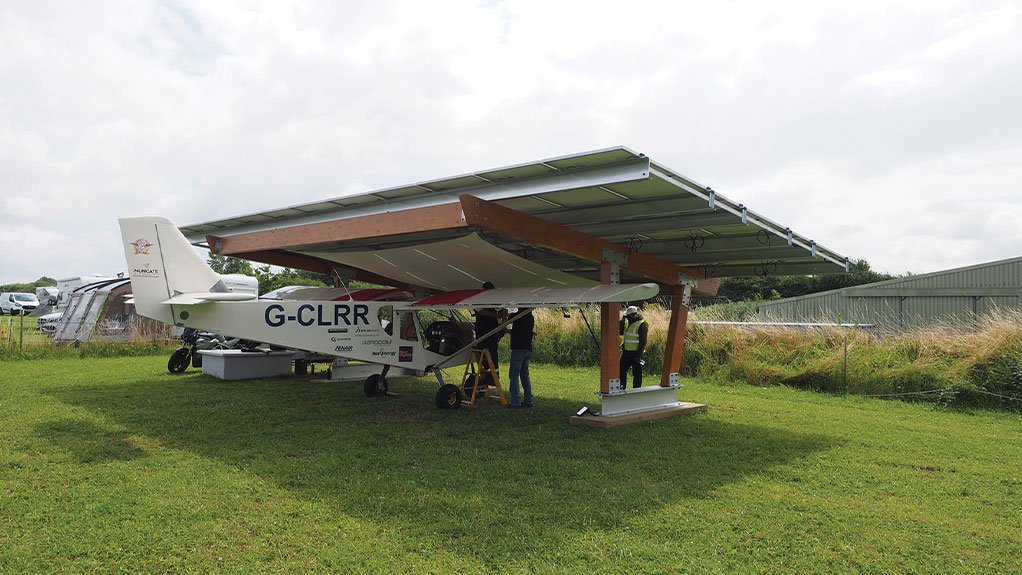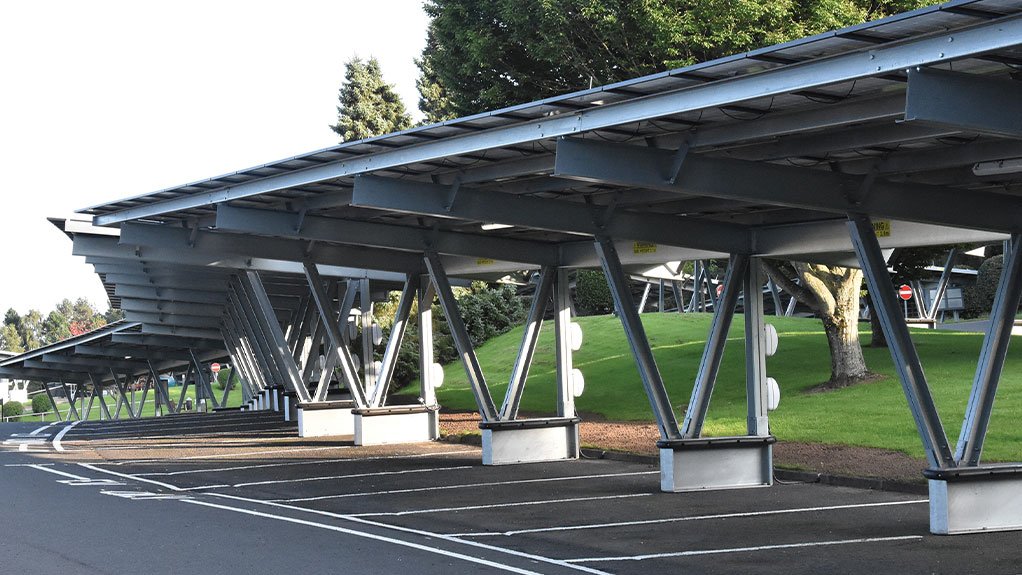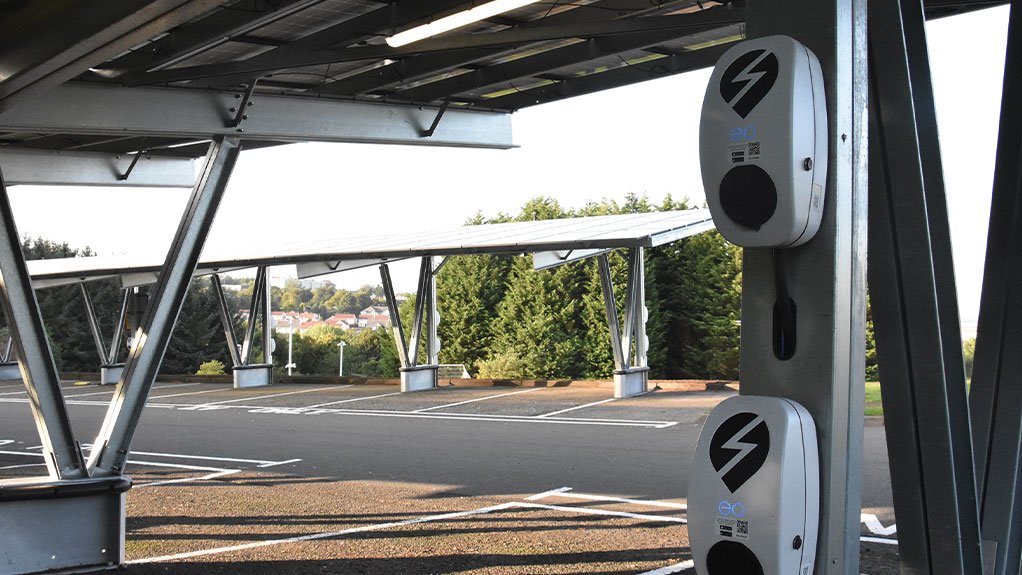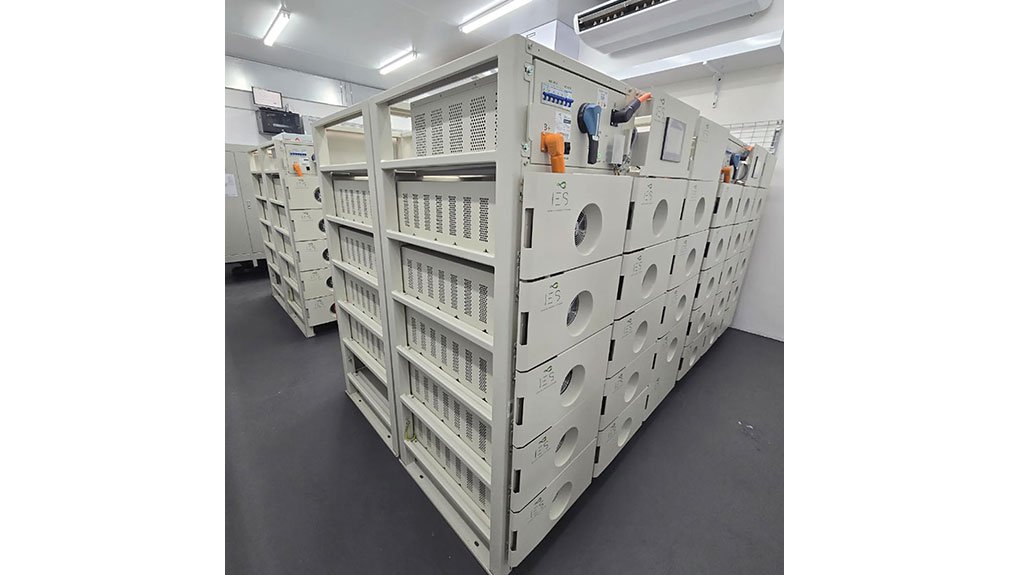As energy demands continue to soar globally, South African businesses must make critical decisions to secure their future energy needs. The integration of Battery Energy Storage Systems (BESS) with solar energy is rapidly emerging as a key solution for industries looking to stabilise their power supply, cut costs and enhance sustainability. But beyond managing power disruptions, the benefits of BESS go much further, impacting operational flexibility, energy security and long-term competitiveness.
Benefits of Battery Energy Storage
Energy cost savings: BESS allows businesses to store excess solar energy generated during the day and use it during periods of peak demand, where electricity prices typically skyrocket. This means less reliance on grid electricity during these expensive periods, resulting in significant savings.
Time-of-use arbitrage: Even without solar energy, businesses can take advantage of lower grid electricity prices during off-peak hours, storing the energy for use during more expensive peak hours. This strategic energy management strategy leads to more predictable costs.
Enhanced energy security: Power outages, whether caused by grid failures, maintenance, or vandalism can have detrimental effects on business operations. BESS ensures a reliable, continuous power supply, protecting critical processes and equipment from disruption.
Overcoming grid capacity challenges: The South African grid’s ageing infrastructure and limited capacity pose barriers for businesses that want to expand their energy usage, often being unable to connect their solar energy systems to the grid. BESS allows businesses to operate independently of the grid’s limitations, enabling reliable energy supply even when the grid struggles to keep up.
Operational flexibility: The demand for energy may not align with solar energy generation, for example, manufacturing plants that run machinery during the night or cold storage facilities. By storing solar energy during the day, BESS enables businesses to use this renewable energy when it is needed, optimising its usage and minimising waste.
Price competitiveness: Reducing and stabilising energy costs with BESS can help lower production costs, enabling businesses to remain competitive in both local and international markets.
Sustainability strides: With global pressure on businesses to reduce carbon footprints and adhere to sustainability standards, integrating solar with BESS supports greener, more environment friendly practices. This aligns with consumer demand and prepares businesses for evolving energy regulations.
Electrification of Fleets: Driving Business Innovation
The adoption of electric vehicles (EVs) is gaining momentum in South Africa, with the electrification of fleets becoming one of the cornerstones of corporate sustainability strategies. Imagine a future where delivery trucks, tractors and even refrigerated logistics vehicles are powered by electricity rather than fossil fuels. The implications of this shift are profound - not only reducing carbon emissions, but fundamentally altering energy consumption patterns across industries. The electrification of agricultural fleets, for instance, presents a major opportunity. South African farms could switch to electric tractors and harvesters, using solar power stored in BESS to keep operations running smoothly.
As energy solutions provider RenEnergy international brand and marketing manager Christine Bombal notes, “Electrification isn’t only about changing what powers our vehicles, it’s about a fundamental shift in how energy is consumed and managed. By integrating solar energy and BESS with EV infrastructure, businesses can future-proof their energy systems while driving down operational costs.”
A Proven Energy Partner
RenEnergy’s expertise goes beyond traditional solar installations. With international experience in designing EV charging infrastructure for everything from electric cars to planes, RenEnergy is helping to pave the way for the future of energy. RenEnergy was progressive by developing carport solutions when the electric vehicle market was still in its infancy and is now well-positioned to assist businesses to turn their carparks into efficient power generating and charging structures. Its ventures into solar-powered charging ports for electric planes demonstrate its commitment to driving innovation in sustainable aviation. The future will see the demand for charging infrastructure rise exponentially, and RenEnergy is ready to meet that challenge head-on.
RenEnergy’s history speaks for itself. Founded in 2006 in the UK and expanding to South Africa in 2012, RenEnergy has established itself as a leading energy solutions provider, designing and delivering tailored commercial energy solutions that meet the unique needs of each customer. In 2023, RenEnergy became part of the global energy group Aggreko, a strategic milestone that has enabled it to scale its innovative renewable energy offerings, while retaining the agility of an entrepreneurial enterprise.
This level of experience and international insight is crucial when selecting a long-term energy partner. In today’s rapidly changing energy landscape, businesses need partners who can offer more than just products - they need partners who can deliver comprehensive solutions that ensure sustainability and profitability.
Future-proofing your Business
The need for reliable, cost-effective energy solutions is only going to increase as global demand for electricity soars. By 2040, the International Energy Agency predicts that global electricity consumption will rise by 60%, with industrial activities driving much of this demand. Traditional grids are ill-equipped to handle such rapid growth, making alternative energy solutions like solar power and BESS more critical than ever.
RenEnergy is well-positioned to help businesses navigate this new energy reality.
With its expertise in solar, BESS and EV charging infrastructure, it offers end-to-end solutions that go beyond mitigating loadshedding. It ensures businesses remain competitive, sustainable and prepared for the future.
The Rise of Electric Fleets: A Greener Tomorrow
As businesses across sectors, from agriculture to logistics, transition to EVs, the need for energy will continue to rise. But with this challenge comes opportunity. Companies that invest in EVs and solar-powered charging infrastructure will find themselves at the forefront of the green energy revolution.
For logistics and cold chain companies, in particular, this shift promises significant efficiency gains. By pairing EVs with solar power and BESS, companies can create an energy ecosystem that is both more sustainable and more resilient to grid fluctuations.
The future of energy is changing. Bus-inesses that embrace solar energy and
battery storage systems today will secure their position in tomorrow’s economy. With the right energy partner, companies can unlock a range of benefits, from cost savings to sustainability and energy independence.
RenEnergy, with its proven track record and forward-thinking approach, is ready to help South African businesses make this transition. By investing in solar and BESS, businesses can not only meet today’s energy challenges, but also future-proof their operations for the long term.
Bombal puts it best: “The energy landscape is evolving rapidly. Those who invest in renewable energy today are the ones that will thrive tomorrow.”
Contact: Juandré Pitout
Tel: 021 851 0685
Email: consultants@renenergy.co.za
Edited by: Creamer Media Reporter
EMAIL THIS ARTICLE SAVE THIS ARTICLE
ARTICLE ENQUIRY
To subscribe email subscriptions@creamermedia.co.za or click here
To advertise email advertising@creamermedia.co.za or click here



















